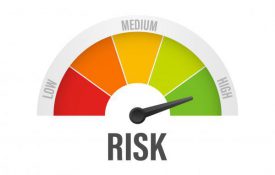-
24th Annual Rotman Research Institute Conference
Join world-renowned scientists in Toronto at the 24th annual Baycrest Rotman Research Institute conference titled "Memory and the Brain in Health and Disease”. March 10-11, 2014 at the Omni King Edward Hotel. Post-conference workshops on March 12, 2014 at Baycrest. Full details can be found on the website at research.baycrest.org/conference
-
Your Brain ‘Sees’ Things Even When You Don’t
The brain processes visual input to the level of understanding its meaning even if we never consciously perceive that input, according to new research published in Psychological Science, a journal of the Association for Psychological Science. The research, led by Jay Sanguinetti of the University of Arizona, challenges currently accepted models about how the brain processes visual information. Sanguinetti, a doctoral candidate in the UA’s department of psychology in the College of Science, showed study participants a series of black silhouettes, some of which contained recognizable, real-world objects hidden in the white spaces on the outsides.
-
Psychological Science Sets New Standards for Research Reporting
The leading journal in psychological science is introducing innovative new guidelines for authors, part of an effort to strengthen the reporting and analysis of findings in psychological research. The new author guidelines for the journal Psychological Science are among several related initiatives that researchers, led by the Association for Psychological Science, are undertaking to promote the replicability of scientific studies and the use of sound research practices across all areas of the field.
-
Sleep Unbinds Memories From Their Emotional Context
Many of us might remember our parents insisting that we get a good night’s sleep before a big exam or test, with the argument that being well rested would help us perform at our best. Although we may not have believed our parents back then, perhaps we should have. Research is showing that sleep plays an important role in the stabilization and strengthening of memories. In particular, research has shown that sleep makes memories more resistant to interference from competing lexical information. The authors of a recent article in the journal Cortex wondered if sleep could also protect memories from emotional interference.
-

Visual Aids Can Help People Better Understand Health Risks
In order to be able to make sound health decisions, patients need to understand the risks and the benefits that come with medical treatments, screenings, and lifestyle choices. But many people have difficulty understanding the
-
Tapping Leaders for a Crisis: Are Women Better At Fixing the Problems?
By the time Marissa Mayer took over a struggling Yahoo! and Meg Whitman rushed into aid a fading Hewlett-Packard, the term glass cliff was well-ensconced in the businesswoman’s lexicon. A steady stream of psychological research was showing that women are indeed more likely to be tapped for corporate leadership positions during times of crisis, when the risk of failure is at its highest. The widespread assumption is that feminine leadership traits, such as being understanding and tactful, work better under such circumstances.

